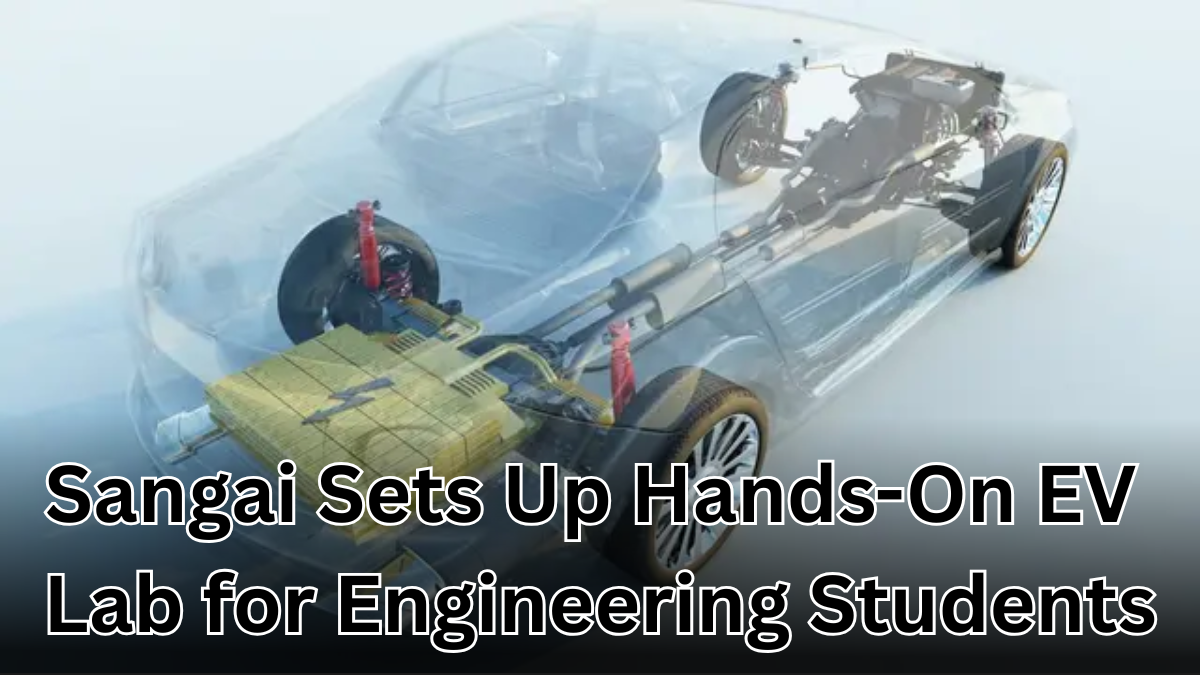Sangai University has taken a bold step into the future of education with the launch of a state-of-the-art Student EV lab setup. Designed exclusively for engineering students, the lab blends classroom learning with real-world applications in the electric vehicle industry.

A Practical Approach to EV Education
The new electric car workshop offers students a rare opportunity to work with actual EV systems and tools. Instead of learning solely through theory, they now have a space where they can build, diagnose, and experiment.
Key Features of the EV Lab
-
Dedicated workstations for project-based learning
-
Complete EV toolkits for hands-on training
-
Functional EV models for testing and demonstration
-
Battery management and motor control systems for diagnostics
What Students Will Learn
This Student EV lab setup focuses on delivering industry-relevant training through detailed modules and real-time experimentation.
Training Modules and Learning Goals
| Module | What Students Learn |
|---|---|
| EV Components | Assembly and disassembly of EV parts |
| Battery Systems | Monitoring, safety, and battery optimization |
| Electric Motors | Drivetrain mechanics and power transfer |
| Fault Detection | Real-time diagnostics and repairs |
| Lab Safety | Handling EVs under high-voltage conditions |
Preparing Students for the Future
The electric car workshop gives students a major edge in career preparedness. It transforms classroom theory into practical skills essential for success in the growing EV sector.
Key Benefits
-
Real-time problem-solving experience
-
Higher employability in green tech roles
-
Exposure to EV startup and manufacturing processes
-
Collaboration and team-building through lab projects
Sangai University’s Long-Term Vision
This Student EV lab setup is part of Sangai University’s long-term vision to drive innovation in electric mobility. Future initiatives may include EV innovation hubs, startup accelerators, and international partnerships for advanced training.
FAQs
What kind of students can access the EV lab?
Engineering students from electrical, mechanical, and automobile streams can access the lab as part of their coursework and research activities.
Will students get industry exposure through this lab?
Yes. Sangai University is in talks with EV companies to offer internships, expert-led sessions, and startup mentoring within the lab environment.
Can students build their own EV prototypes here?
Yes, the lab supports full-scale prototyping, allowing students to design, build, and test their own electric vehicles or systems.
Is the lab limited to electric cars?
No. While it’s branded as an electric car workshop, it includes components for two-wheelers, utility EVs, and even hybrid system demonstrations.
Click here to learn more